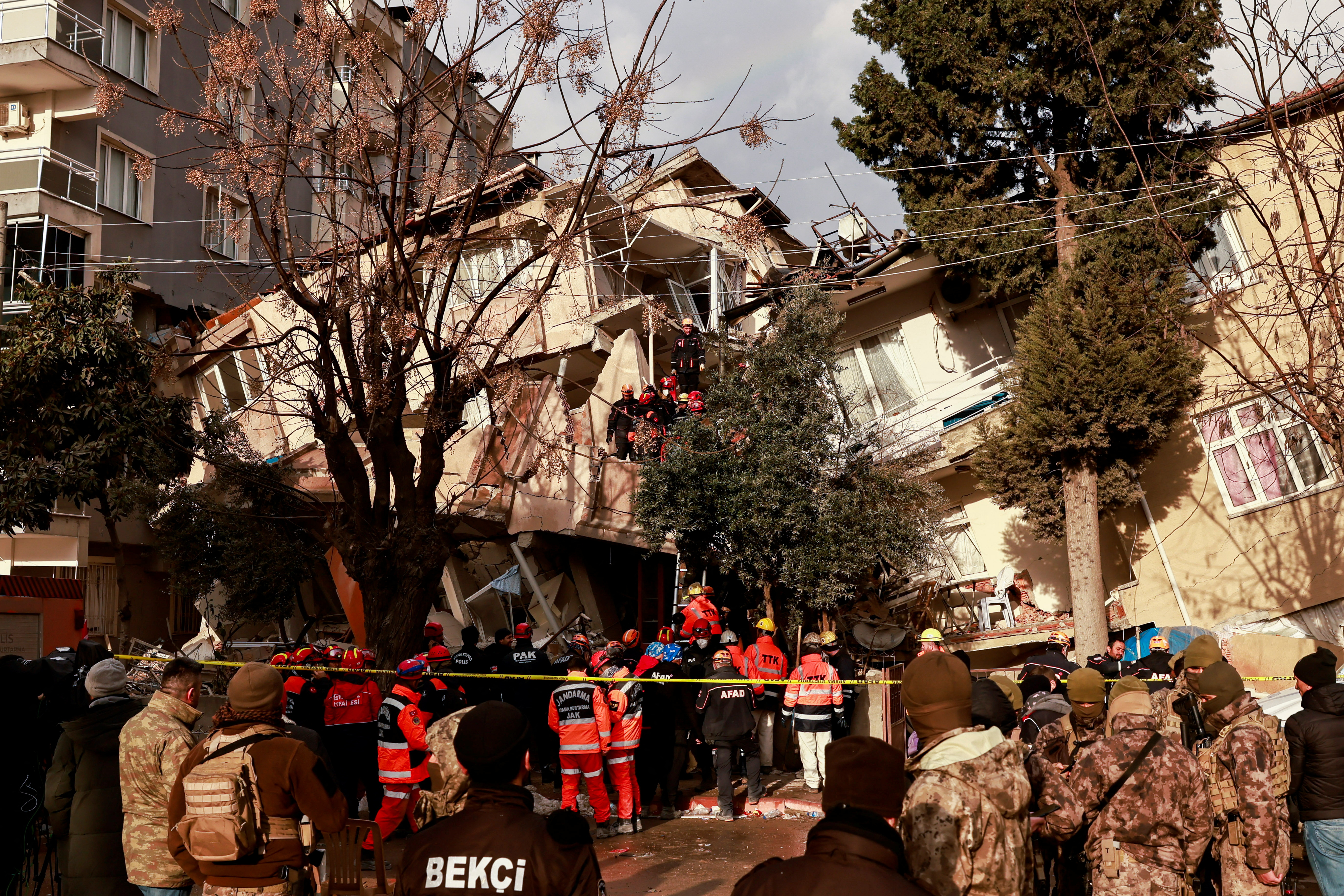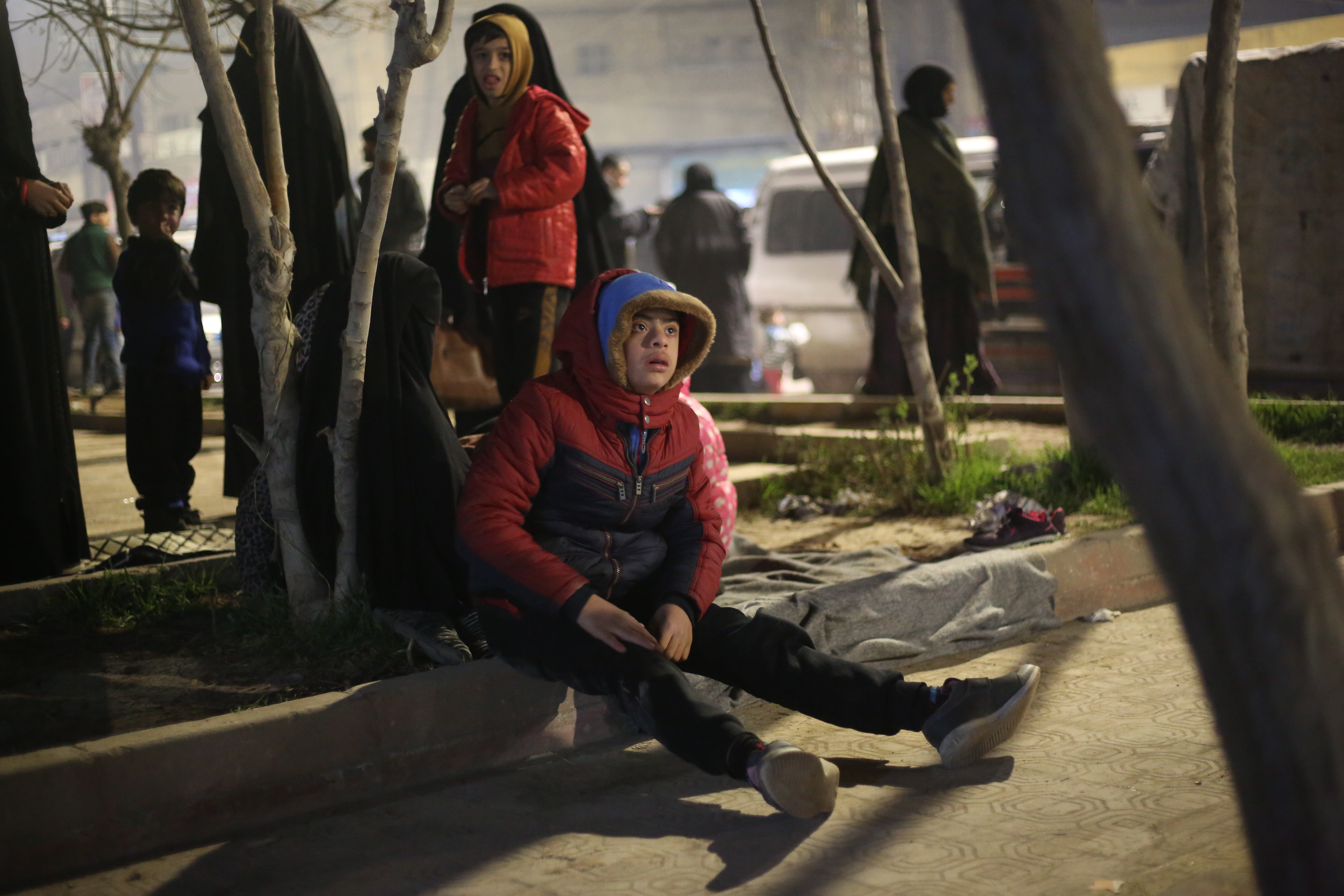
At least six people have been killed and more than 200 people injured after magnitude 6.3 and 5.8 earthquakes hit southern Turkey and across the border in Syria, two weeks after two powerful quakes killed tens of thousands of people and devastated vast swaths of the region.
Al Jazeera’s Rob McBride, reporting from Defne in Turkey’s Hatay province – hit by the magnitude 6.3 quake on Monday – said the latest quakes were “adding more misery and suffering to an area and people that have already suffered so much”.
“It happened at a time when people were coming back to buildings that have already been damaged and have been sifting through what used to be their homes looking for possessions,” he said.
“People who were once living out in the streets under tents were again outside reliving, if you like, all of the trauma of living through earthquakes … so it is an incredible concern for everybody who is here, trying to rebuild their lives.”
The Hatay provincial governor’s building, already damaged in the February 6 quakes, collapsed in the latest tremor that struck at 8:04pm (17:04 GMT), television footage showed. Turkey’s Disaster and Emergency Management Presidency (AFAD) said a magnitude 5.8 quake followed three minutes after the first one.
The head of AFAD said at least 294 people were injured in Monday evening’s earthquake that caused panic among people already devastated by the February 6 quakes that killed more than 47,000 people in Turkey and Syria. At least 41,156 people were killed in Turkey alone.
“We were very scared. We thought the ground would tear apart,” Hatay resident Aslan Gracoglu told Al Jazeera.
The earthquake was felt in Syria, Israel, Iraq, Lebanon and Palestine, according to media reports.
Patients were evacuated from some health facilities that had remained in operation after the massive tremors two weeks ago, as cracks had emerged in the buildings, Turkish health minister Fahrettin Koca said on Tuesday.
In Hatay’s Samandag district – the epicentre of the magnitude 6.3 quake – where AFAD had reported one person dead on Monday, residents said more buildings had collapsed but most of the town’s residents had already fled after the initial earthquakes. Mounds of debris and discarded furniture lined the dark, abandoned streets.
Al Jazeera’s Sami Zeidan, reporting from Samandag, said that at least 28 buildings had collapsed, according to official figures.
Authorities said there had been 90 aftershocks since Monday’s quakes, Zeidan added.
Felt earth will ‘split’
Meanwhile, Syria’s state news agency reported six people were injured in Aleppo from falling debris. More than 100 people have been injured, according to the Syria volunteer group, the White Helmets.
Al Jazeera’s Zeina Khodr, reporting from Beirut, said in northwest Syria as well as government-controlled Aleppo, there were reports that some buildings damaged in the February 6 earthquake had collapsed.
However, she noted they had yet to receive any reports of “serious injuries”.

“Most of the people who were affected two weeks ago are now living in tents outdoors. In footage or videos emerging from that region you can see people in cars and in the streets, people are frightened, are panicking,” Khodr said.
Syrian activist Abdul Kafi al-Hamdo, a resident of the rebel-held region of Idlib bordering Turkey, said most people had been staying away from damaged or weak buildings since the February 6 quakes.
“All the people here are not safe from anything. They don’t trust anything even if their buildings are very strong,” he told Al Jazeera from Idlib.
“People are scared by the nights. We will have this problem for a long time.”
Already devastated by more than a decade of war, the northwest of Syria near the border with Turkey was the scene of the most deaths, with more than 4,525 people killed. The area is controlled by rebels fighting against President Bashar al-Assad.
Syria said 1,414 people were killed in areas under government control.
World Health Organization head Tedros Adhanom Ghebreyesus said “WHO teams are supporting health workers and mobile clinics in both countries with medical supplies so they can offer immediate care to everyone in need”.
The World Food Programme has been pressing the authorities to allow aid to pass from government-controlled areas.
Thousands of Syrian refugees in Turkey have returned to their homes in northwest Syria to contact relatives caught up in the disaster or have sent family members back to Syria after their homes in Turkey were destroyed.





